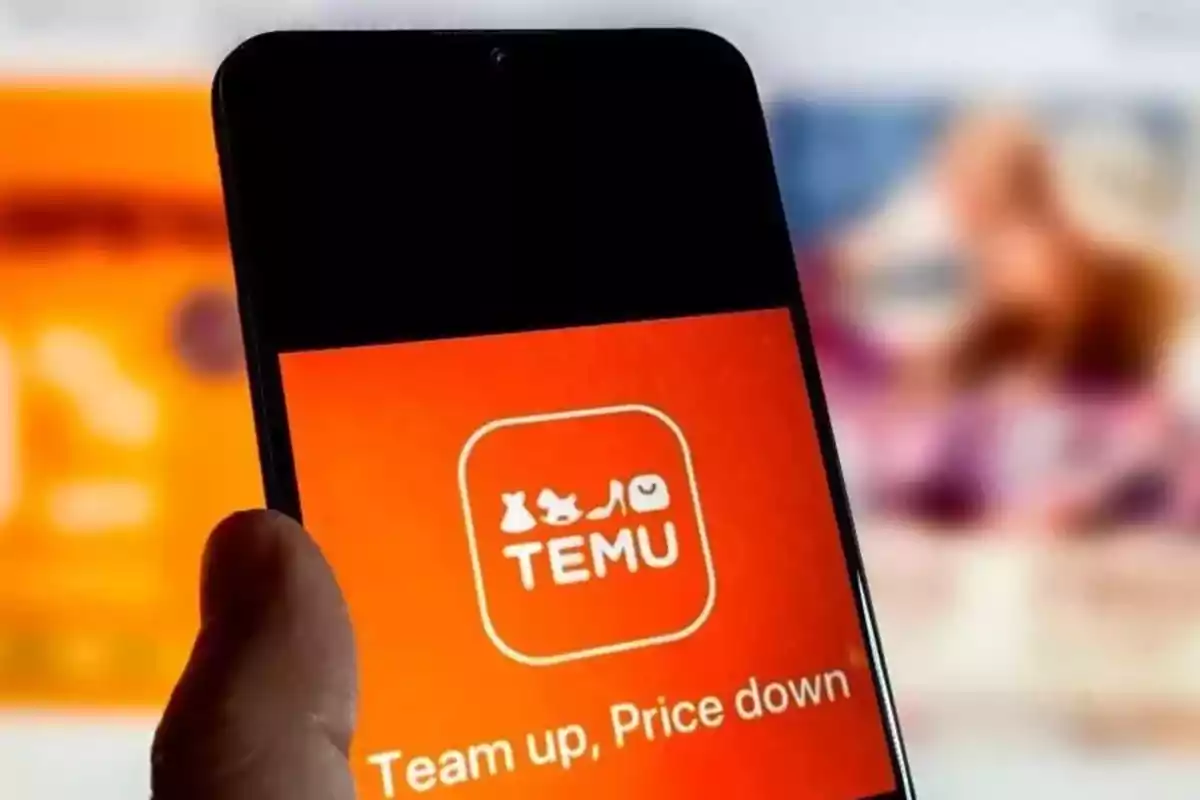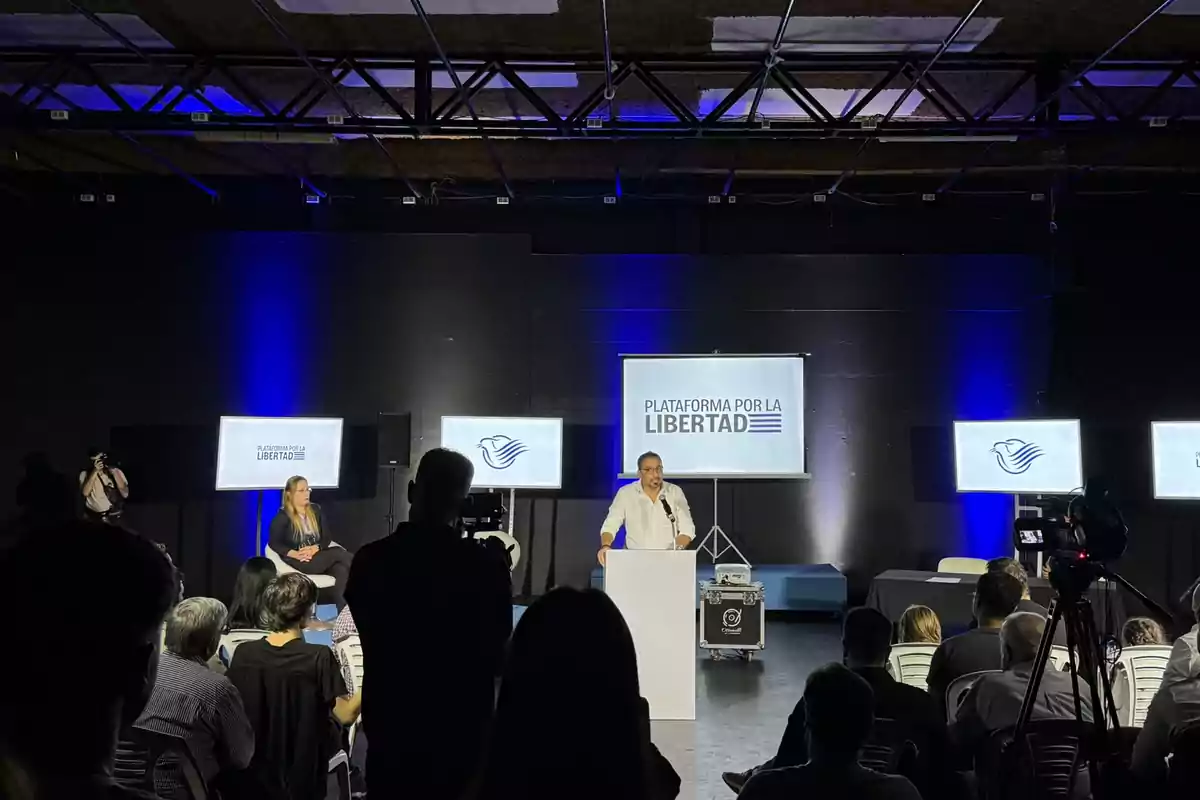
Concerning: The Uruguayan business lobby doesn't want to compete and seeks to prohibit
The 'Temu Effect' and the protectionist crusade: When the free market frightens Uruguay
In a world where e-commerce has democratized access to goods and services, Uruguay seems determined to revert to the protectionism of the 20th century.The emergence of Temu, the Chinese platform with ridiculously low prices, has sparked a collective hysteria among local business owners and trade unions who are clamoring for restrictions on online shopping.
A restrictive regime that curtails freedoms
Since 2012, Uruguay has regulated online shopping under a franchise regime that allows those over 18 to make up to three tax-free shipments per year, provided they do not exceed 200 dollars and 20 kilograms (44 pounds) per package (Decree 336/015, in effect since 2016). Initially, five shipments per year were allowed, but successive reductions (four in 2016, three in 2017) reflect a trend to limit access to global trade
This legal framework, far from promoting freedom of choice, already imposes significant obstacles. Each package must go through customs checks that, according to business owners, are insufficient to guarantee "security" or "quality," but in practice, they increase costs and delay deliveries.
The e-commerce boom
E-commerce in Uruguay has exploded, and Temu is the catalyst.In 2024, 961,152 web transactions abroad were recorded, a 75% increase compared to the previous year, with an average of 80,096 monthly purchases.
Between January and February 2025, 255,240 packages arrived under the franchise regime, a year-on-year growth of 165.6%. February 2025 marked a peak of 167,000 operations, a jump of 240% from the 48,000 in February 2024. It is estimated that purchases under this regime will exceed 180 million dollars in 2025.
These numbers are not just statistics; they are proof that Uruguayans are voting with their wallets. They prefer cheap, varied, and accessible products, something that local commerce, burdened by taxes and operating costs, can't match.
Restricting these purchases will not make consumers return to local stores; it will simply push them to informal markets or smuggling.
You might also be interested in: Lacalle Pou's Government and the 0-0 Uruguay
The impact of Temu: A sign of a deranged Uruguayan State
Temu landed in Uruguay in May 2024 and, in a few months, transformed the e-commerce landscape. In November 2024, purchases under franchises doubled those of April (from 51,389 to 101,611). In 2024, the number of Uruguayans using the franchise regime went from 220,000 to 650,000, an increase of 195%.
The Chamber of Commerce estimates that Temu moves 170,000 packages monthly, generating a "loss" of 15 million dollars a month for local commerce. The most affected sectors are clothing (10% of total imports under franchises) and toys (17%).
Uruguayan consumers, tired of prices inflated by taxes and local margins, have found in Temu an alternative that allows them to stretch their income.
Business owners cry "unfair competition," but what they really fear is freedom of choice. Temu doesn't force anyone to buy; it offers prices that local stores can't or do not want to match. Instead of demanding restrictions, they should innovate, expose to society the high tax burden they have, reduce costs, and also accept that the market is not captive and, like everything, evolves.

Let's see an example comparison: a pair of sneakers, on Temu, is half the price, being of much higher quality.
What do business owners want? Protect the status quo

The Chamber of Commerce and Services (CCSUY) and the Chamber of Digital Economy (CEDU) have declared war on Temu. Their central argument is that the platform operates under "unequal conditions," as purchases under franchises do not pay taxes or face the same health or customs controls as local importers.
Julio César Lestido, president of the CCSUY, claims that Temu "seriously affects" commerce and employment, demanding a review of the tax burden on importers and strengthening customs controls.
The CEDU, meanwhile, proposes a VAT exemption for local online purchases of up to 200 dollars, as a counterbalance to import franchises.
Local business owners say they want to compete but on equal terms.If business owners run the race with a 20 kg (44 pounds) backpack on their backs (the heavy regulations and high tax burden in Uruguay) and TEMU runs free, business owners do not ask the referee (the State in this analogy) to remove the backpack to compete equally, but they ask to put the same backpack on the other.
As Fernando Doti said, at the presentation of the Platform for Freedom (PPL) on March 28, 2025, referring to business owners who ask for restrictions on web purchases"We are tired of so much lukewarmness, of political correctness, of the complexed right, and really tired of the 'I'm liberal, but... protect me so people don't buy from Temu," ironically showing the contradiction of those business owners.

What these lobbying business owners are seeking is to redirect consumers' money to their own coffers. When business owners say they "lose 15 million dollars to TEMU," they start from a mistake, believing that money is theirs and that the State must act to ensure it.
"But if people buy from TEMU, local jobs are lost," say business owners seeking advantages under that pretext. This is a half-truth.If a user buys a sneaker for $1000 on TEMU, which costs $3000 in a local store in Uruguay, the $2000 doesn't evaporate, it remains in their hands to be spent in another sector of the economy, and the consumer will have the sneaker and other things for the difference, so overall, the economy will have used its resources more efficiently.
Ultimately, what business owners seeking to limit purchases on TEMU propose is a distributional struggle over consumer money, where other business owners without lobbying power and especially the consumer lose.
The government's stance: Timidity and ambiguity, the Uruguay of the draw
The government of Yamandú Orsi has reacted to the "Temu effect" with caution,but without clear commitments.
The Ministry of Economy, through Juan Labraga, director of the Trade Policy Advisory, is "gathering information" to analyze the phenomenon considering that Uruguay will fulfill its international commitments, such as the TIFA with the United States, which requires facilitating online purchases of up to 200 dollars without taxes. However, it doesn't rule out measures to ensure "fair competition," a euphemism that smells of state intervention.

The government should defend consumer freedom and global trade, not yield to the pressures of trade unions seeking to perpetuate an outdated economic model.
The proposal to increase the franchise to 500 dollars, under discussion in Parliament,would be a step in the right direction, but it faces resistance from business owners and legislators who fear a "fiscal resignation," a much-used euphemism but one that starts from something fallacious, believing that people's and companies' money belongs to the State and that generously, it doesn't take it.
A separate paragraph for the opposition of the Republican Coalition and for former PresidentLacalle Pou, who, like in so many other issues, do not fight the battle of ideas and have not said a word about this. Could it be that they agree with imposing restrictions and do not dare to say it?
Ultimately, the State should not be an arbiter or savior; its role is to ensure that the rules are clear and that no one prevents Uruguayans from spending their money as they wish.
Freedom is non-negotiable.
The "Temu effect" is not a crisis; it is a revolution that exposes the weaknesses of Uruguayan commerce and the protectionist mentality of its elites. Current laws already sufficiently restrict online purchases, the volumes of Temu reflect a real demand, and business owners, instead of innovating, ask for barriers.
Journalist Esteban Queimada, who this week announced his foray into politics, was clear on the subject through his X @EQueimada account
I will always be on the side of the consumer. They have the right and freedom to buy products and hire services that meet their needs and fit their purchasing power. The State only protects the interests of business groups that monopolize the market.
This prebendary practice crushes free trade, discourages entrepreneurship, and subjugates the individual. This system of favors between politicians, unions, and corrupt business owners is always paid for by the population with a high cost of living, inability to save, discouragement to undertake, and consequently the desire to leave the country.
The business chamber should side with the consumer to eliminate regulations, exorbitant taxes, and anti-competitive practices that end up crushing the local economy.
The government, caught between free trade and local pressures, hesitates as it did with UBER in 2016, where the search for the "Uruguayan draw" led to a long-term loser: the consumer, who today doesn't have a price and quality differential when using UBER.
The only way for the consumer to win is by letting them choose freely, anything else is nonsense.
More posts: